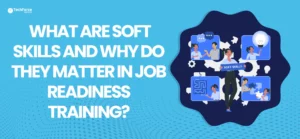In the dynamic field of Salesforce, Business Analysts (SFBAs) are in high demand. The pace of change is unparalleled, driven by the surge in digital transformation across organisations. As you dive deeper into this article, we’ll learn about the trends that are shaping the future landscape for Salesforce Business Analysts. Together, we will uncover the essential skills needed to stay ahead and thrive in this dynamic and ever-changing sector.
What is a Salesforce Business Analyst?
As you step into the shoes of a Salesforce Business Analyst, you become an indispensable part of the company’s Salesforce implementation team. Your role is vital in connecting business stakeholders with the technical team, acting as a liaison that ensures seamless communication.
Your responsibilities include gathering and analysing business requirements, and efficiently translating them into comprehensive functional specifications. This critical function ensures that the Salesforce solution is perfectly matched to the organisation’s specific needs.
Importance of Salesforce Business Analysts in driving business success
Salesforce Business Analysts play an important role in driving business success through their expertise in understanding and analysing the organisation’s requirements. Your involvement as a Salesforce BA extends beyond the initial stages, encompassing vital aspects like testing, training, and documentation.
Your commitment to these phases plays a crucial role in guaranteeing a smooth implementation process and fostering user adoption. In short, as a salesforce business analyst, your overall responsibilities, role, and requirements are the foundation for a successful salesforce deployment within the organisation.
Skills and qualifications required for a Salesforce Business Analyst
As you aspire to become a successful Salesforce Business Analyst, nurturing excellent communication and collaboration skills is most important. Your journey involves close collaboration with stakeholders and development teams, where you gather requirements and implement solutions seamlessly. Adaptability and a continual thirst for learning about new technologies and industry trends are essential to boost your capabilities.
Moreover, cultivating a solid foundation in business analysis methodologies like Agile or Scrum is highly desirable. Consider pursuing a Salesforce Business Analyst certification training to enrich your skills. Familiarise yourself with the details of the Salesforce Business Analyst job description to refine your understanding of the role’s expectations and nuances.
Emerging Technologies Impacting Salesforce Business Analysts
Salesforce Business Analysts need to stay up-to-date with these emerging technologies and understand how they can be integrated into their projects. Here are key trends to keep a watchful eye on:
1. Emphasis on AI and Analytics
As you navigate the emerging landscape where organisations use artificial intelligence (AI) and advanced analytics, your role as a Business Analyst takes centre stage within Salesforce. Your skill in deriving actionable insights from data and implementing AI-powered solutions is set to become a defining skill. Embrace this important role while contributing to the integration of cutting-edge technologies, ensuring that Salesforce remains at the forefront of data-driven decision-making within your organisation.
2. Integration of Low-Code Platforms
As you are immersed in the transformative wave of low-code platforms, your role as a business analyst becomes critical in reshaping how solutions are built. Your task is to integrate these low-code tools seamlessly within Salesforce, ushering in an era of swift application development. Seize the opportunity to empower business users, enabling them to actively contribute to the creation of solutions.
3. Focus on Customer Experience
As a Salesforce BA, your role is to enhance customer experience by fine-tuning user interfaces, streamlining processes, and utilising customer-centric features within Salesforce. Your focus is on ensuring Salesforce implementation matches with customers and enhances interaction. By actively contributing to the customer experience, you drive positive interactions and elevate the customer journey within the Salesforce implementation.
4. Agile Methodologies in Implementation
Agile methodologies are becoming the norm in software development, and as a Salesforce Business Analyst, it’s expected that you embrace agile practices in your implementations. Agile ensures flexibility, faster delivery, and continuous collaboration, aligning with the dynamic nature of Salesforce projects. This approach ensures Salesforce implementations are agile, responsive, and effectively meet evolving project needs.
5. Security and Compliance Expertise
As a Salesforce Business Analyst, understanding Salesforce’s security features and compliance standards is crucial for data security and compliance. This involves ensuring implementations align with industry regulations and safeguarding sensitive information effectively. As a guardian of data security, you must actively work to provide a secure environment for sensitive information.
6. Mobile-First Approach
Salesforce is adopting a mobile-first approach, focusing on optimising solutions for mobile devices. As a Salesforce BA, your role is to ensure a seamless user experience, contributing to the efficiency and accessibility of Salesforce tools in a mobile-centric environment. This emphasis on mobility aligns Salesforce with the needs of a workforce heavily reliant on mobile solutions.
7. Advanced Reporting and Visualisation
As you progress beyond basic reporting, your journey as a Business Analyst involves mastering advanced reporting and visualisation tools within Salesforce. Take on the challenge of creating dynamic dashboards, exploring AI-driven analytics, and presenting data in a visually compelling manner. Your exploration of these advanced tools not only enhances your skills but also equips you to provide richer insights and more engaging presentations of data within the Salesforce ecosystem.
8. Continuous Learning and Certification
Staying updated in the Salesforce ecosystem is crucial for success as a Business Analyst. Continuous learning and certifications, especially in emerging technologies, maintain a competitive edge. Embracing ongoing education and investing in Business Analyst certification enhances skillset and industry advantage. Attend Salesforce events and join online communities to connect with other SFBAs and learn from their experiences.
9. Cross-Cloud Integration
As a Business Analyst, you’ll be responsible for integrating multiple Salesforce Clouds such as Sales Cloud, Service Cloud, and Marketing Cloud, into an organisation, ensuring seamless integration and synergy. This involves understanding each cloud’s unique features and creating cohesive solutions that combine their strengths.
10. A wider range of technologies
Salesforce is no longer an island. It integrates with a wide range of other technologies, such as marketing automation platforms, customer relationship management (CRM) systems, and enterprise resource planning (ERP) systems. As a Salesforce Business Analyst, it becomes crucial for you to understand these diverse technologies and understand how they intricately integrate with Salesforce.
The future of Salesforce Business Analysts is bright. By staying ahead of the curve and embracing change, SFBAs can ensure that they are in high demand for years to come.
As you explore the ever-changing landscape of Salesforce Business Analysis, consider not only the trends discussed earlier but also take note of additional factors that are poised to shape your future as a Salesforce Business Analyst:
- Companies are collecting an unprecedented amount of data than ever before. Your role as a Salesforce Business Analyst requires you to not only recognize this data influx but also harness your analytical skills to scrutinize and derive valuable insights from it.
- In the face of a changing regulatory landscape, companies grapple with an increasing number of regulations. Your role as an SFBA involves staying aware of these regulations and ensuring that their Salesforce implementations comply with them.
- As you take on the role of a Salesforce Business Analyst (SFBA), you’ll discover the necessity of collaborating with a diverse range of stakeholders, spanning business users, developers, and executives. Your role as an SFBA extends beyond analysis; it’s about effective communication and collaboration, ensuring the development and implementation of successful Salesforce solutions that resonate with all stakeholders involved.
Conclusion
In navigating the future as a Salesforce Business Analyst, embracing these trends ensures not only professional growth but also positions you as an invaluable contributor to the success of Salesforce-driven initiatives within your organisation.
Stay vigilant, adapt proactively, and continue to elevate your skill set to thrive in the dynamic world of Salesforce.











